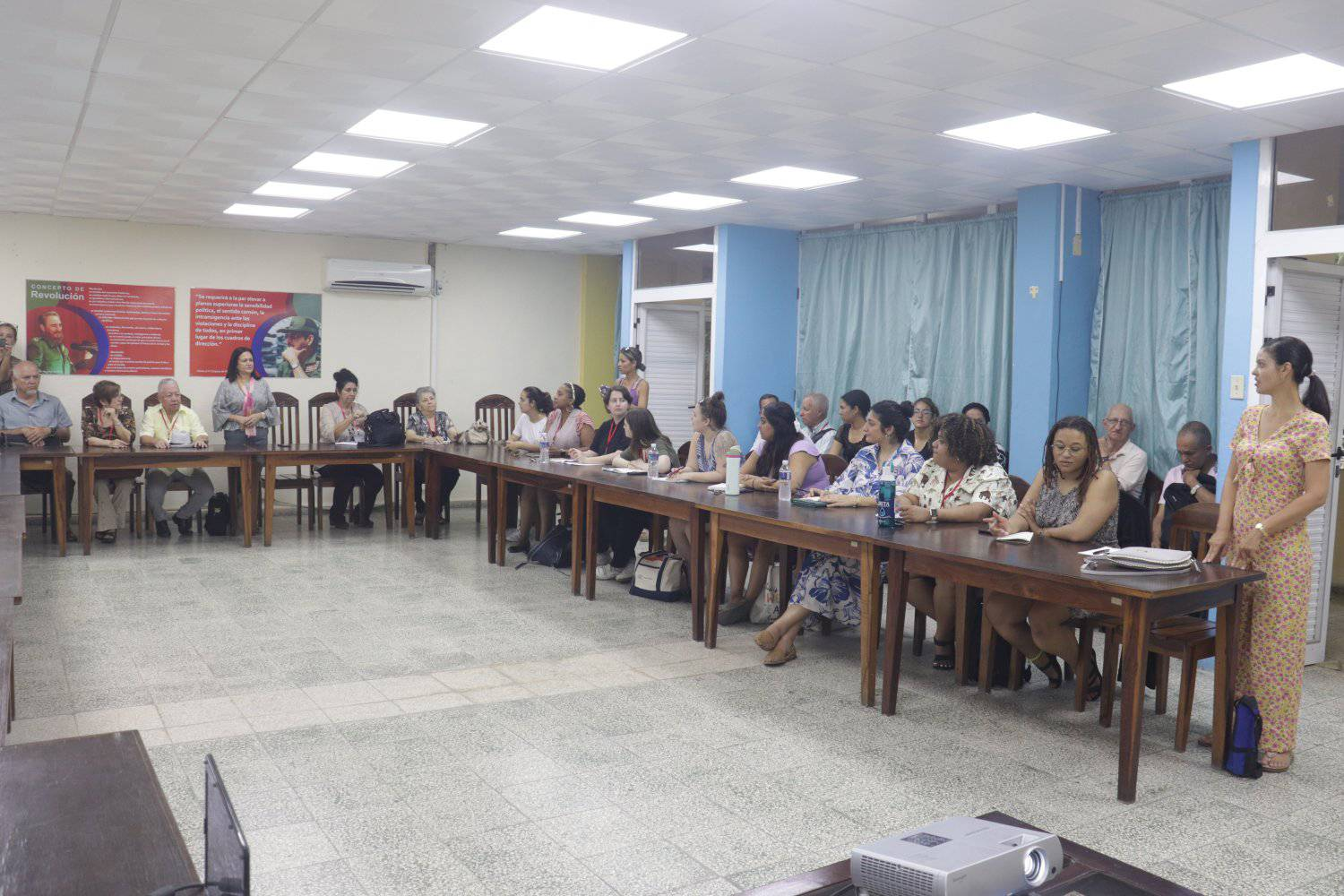
Camagüey, March 19.- Motivated to get closer to the best experiences that are promoted in the teaching field of the province of Camagüey, postgraduate students from different universities in the United States will participate this week in the event Investigative searches between Cuban and North American educators, sponsored by the Association of Pedagogues of Cuba (APC) for 30 years.
Martha Elena Báez García, president of the Camagüey branch of the APC, explained that the exchange spaces allow debate on topics of common interest linked to community work, comparative pedagogy, the main research and projects of the territory, inclusion based on the special educational needs of students and diversity, the identification of talents, as well as gender issues.
She added that the program includes visits to school campuses in the municipality of Sierra de Cubitas, where the delegation's greatest interest is in appreciating the rurality seen from the work of a nursery school and a primary school, while they will learn about the Con project. infinite love that drives the Nicolás Guillén Batista Pedagogical School, related to vocational training and professional guidance, as well as the study of pedagogical personalities, and in particular, those who had greater significance in the 20th century.
Likewise, she announced that they will hold meetings with competition coaches and students who are preparing for this purpose at the Máximo Gómez Báez Vocational Pre-University Institute of Exact Sciences, while other days will be dedicated to sharing with teachers and students from the Vicentina Academy of Arts de la Torre and the Mártires de Pino 3 Agricultural Polytechnic Institute.
This Monday, the University of Camagüey Ignacio Agramonte Loynaz welcomed the foreign delegation, which was concerned about the work of the Enrique José Varona Center for Education Studies (CECEDUC), made up of 15 doctors of science, 75 collaborators, six groups of research, as well as projects and agreements with countries such as Belgium, France, Spain, Ecuador, Colombia, Dominican Republic, Mexico and the United States.
Jorge García Batán, director of CECEDUC, pointed out that there are two types of training for foreign students, full-time and part-time, although there is another variant that is developed through agreements that allow opening groups like those that operate today in the Republic. Dominican Republic so that the Cuban tutors can travel to advise the students and in turn, they can come to Camagüey when they are ready to present themselves for the pre-defense and defense of their thesis.
Some of the visitors asked about the impact of the North American blockade on the education sector, to which María Isabel Bardina Torres, professor and researcher at CECEDUC, demonstrated with concrete examples how, despite being a member of the Association of Latin American Studies, the The United States government has made it impossible for him to attend the event held last year in Canada.
However, she assured that events like these have not prevented extremely sensitive, brave and supportive people, both from the United States and other nations, from deciding to listen to the truth about Cuba and then transmit it in other scenarios.
By the way, Nicola Paul, who is pursuing a master's degree in International Education at the George Washington University in Washington DC, recognized the genius of the Cubans, and described his stay in the largest of the Antilles as a great opportunity to see first-hand the reality of the town, and in particular, of its educational system.
Interested in gender and race issues because she identifies with the Afro-Latino community, Angelina Altagracia Vargas, a specialist in Urban Education at the University of Maryland, arrived on the Island for the second time.
Precisely the work carried out by the Chair of Gender, Family and Society was approached by the young North American woman, who was able to learn in detail about the main line of research that this group currently leads, linked to the access of women to management positions. in the agricultural sector, without failing to take into account the generational approach.
Subsequently, the participants in the Investigative Searches event between Cuban and North American educators arrived at the Center for Genetic Engineering and Biotechnology (CIGB) in Camagüey, where Nemesio González Fernández, director of that institution, carried out a characterization of the company, included among the 32 led by BioCubaFarma.
About biomedical, veterinary, agricultural and industrial products, the different markets with developed countries, innovative projects and products, as well as the role of the CIGB in the fight against COVID-19, the entity's workers spoke with the delegation. North American. (ACN) (Photo: Facebook page University of Camagüey Ignacio Agramonte Loynaz)